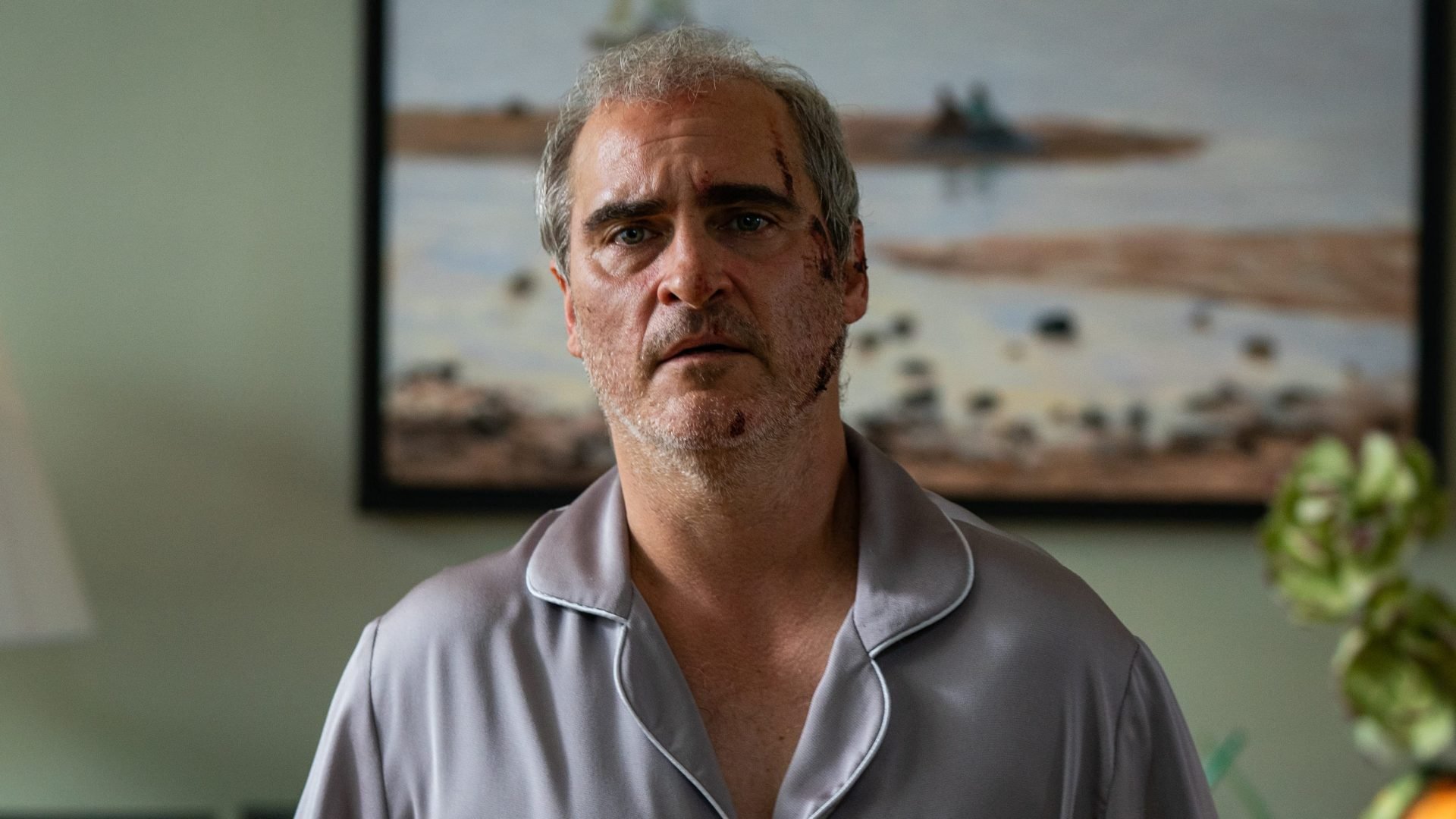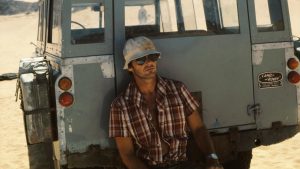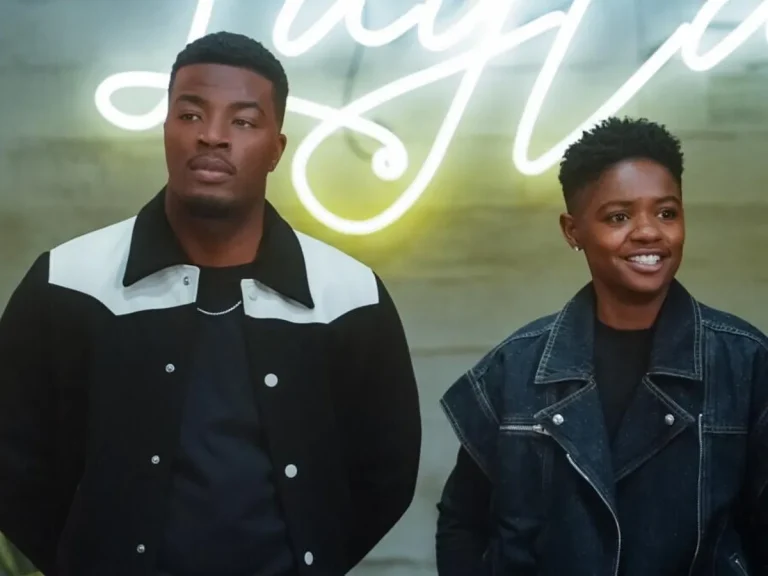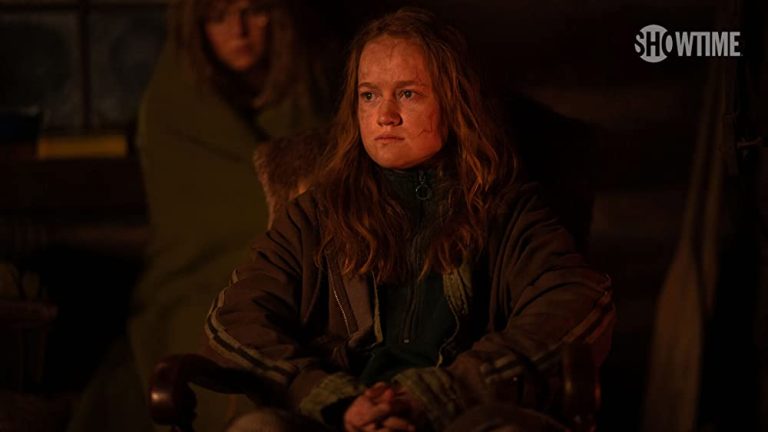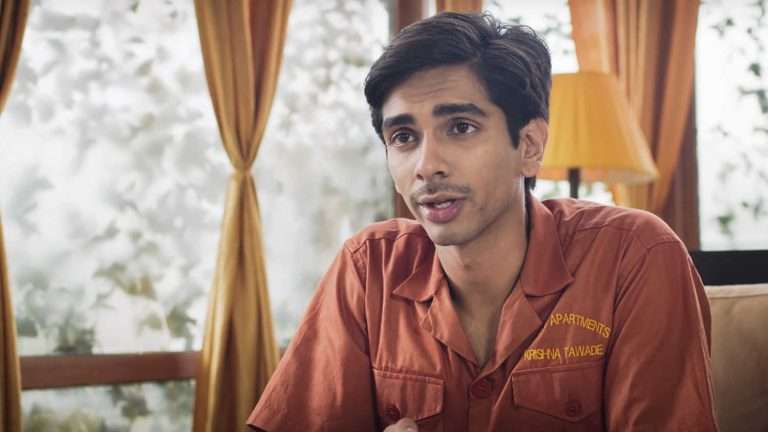Echo (Season 1): It wouldn’t be an overstatement to say that the Marvel Cinematic Universe has been having a rocky phase for the last couple of years. The franchise had been a juggernaut for the better part of a decade, but after the huge success of “Avengers Endgame” (2019), which resulted in a natural endpoint of the ten-year saga, further attempts at continuation and rebuilding of the franchise had resulted in middling results.
To cap it off with the advent of the Disney+ streaming service and then head honcho Bob Chapek’s attempts to go all-in on producing content exclusive to the streaming service, what we had was a prized horse almost running in its last legs and the jockey running the horse ragged at the behest of its owners. With so many hurdles and missteps and mixed reviews and even a box-office flop, with vocal corners of the internet crying the doom of this franchise, what this franchise needed was a win.
To that end, “Echo” wouldn’t be the ideal candidate to start as a win in the MCU ledger. For one, it is a spinoff of a miniseries (“Hawkeye”), which is already a spinoff of a character mostly relegated to second-tier status. Secondly, Maya Lopez, or Echo, even in the comics, is a supporting character who hasn’t been explored much. The genesis of that character is a fascinating one, and its connections to the “Daredevil” mythos are also catnip for material. But what also works in its favor is the representation of a sect of the populace—a Native American subset. A cynical person would look at the genesis of “Echo” in the MCU and only look at checkboxes being ticked off—Native American as well as disability representation. But that would be a disingenuous way to look at it.
If anything, “Echo,” in its 5-episode run, shows the story of a character completely capable of standing on its own, even as the existing baggage of the MCU (almost 23 years old) threatens to overload it precisely because of context. The marketing of the show, too, chooses to focus on proving the canonicity of one of the best MCU properties in a decade: the three-season run of “Daredevil,” which was produced by Netflix and starred Charlie Cox as the titular vigilante and Vincent D’Onofrio as New York crime boss the Kingpin.
By choosing to tie Echo’s origin to Fisk’s character, it runs the risk of her story being overpowered by the story of Fisk and Daredevil and producing excitement over the future of that corner of the Marvel Universe rather than creating the current product. It’s a symptom that the “shared universe” has been criticized over and over. Thankfully, “Echo” majorly chooses to maintain its own identity.
Echo (Season 1) Recap:
Who is Maya Lopez, AKA Echo?
Restructuring the MCU to ensure streamlining and accessibility for viewers unaware of Echo as a character and only checking out the show because of the presence of Daredevil and Wilson Fisk puts the first episode, “Chafa,” as a form of an extended prologue. We do get the incident showing Maya and her relationship with her cousin Bonnie, while from the parents’ side, we also see the relationship between Maya’s parents and her grandparents before Maya has her life-altering tragedy.
It’s kind of foretold to her grandmother by a vision of the woodpecker, who appears to the Choctaw to warn them of tragedies to come, and tragedies do come in the form of a vehicular accident in which Maya’s mom passes away, and Maya loses her leg. The resultant tragedy forces Maya’s grandmother, Chula, to withdraw from her father because she believes the accident was caused by his past as a gangster. Maya and her father, William, moved to New York, much to the sadness of Maya’s cousin and best friend, Bonnie.
As the story now progresses, it is intertwined with 2022’s Hawkeye series, where we first met Maya as an enforcer of Wilson Fisk (the Kingpin). We learn that Maya would be sent to a self-defense school for protection, while William would resume working for the Tracksuit Mafia. Fisk (Vincent D’Onofrio, very much the Netflix version leaning over with some of the comic book sensibilities rather than the cartoonish version in “Hawkeye”), meanwhile, takes an interest in Maya and her future, kind of like Emperor Palpatine taking an interest in Anakin Skywalker.
We are then treated to scenes of “Hawkeye,” where we witness Maya watching her father and crew being killed by Ronin, a shadowy samurai figure, which makes her angry and in search of revenge. We are then shown the fateful meeting of Ronin and Maya in the car parking lot, a pivotal scene in “Hawkeye,” where Ronin reveals himself to be Clint Barton. His hearing impairment had led him to learn to communicate via ASL (American Sign Language), which he uses to communicate with Maya, where he reveals that Fisk had manipulated events such that Ronin would kill her father and her crew and force Fisk to take over her father’s territory without encountering any resistance.
Maya’s anger at her “uncle” is justified because, for the majority of her life, her uncle had taken her under his wing. The first incident that the show deigns to show us is Fisk almost killing an ice cream vendor for mocking Maya over her insistence on using ASL to communicate. The brutality, however, doesn’t faze Maya. Instead, she kicks the already unconscious man, which impresses Fisk. Later, after William’s death, Maya is stopped from getting arrested by the police for stealing a motorcycle and letting it crash into a police vehicle by Fisk. Fisk instead sends her on a mission to collect protection money from other gangs.
The resultant fighting and action set-piece, utilizing mostly long takes, resembles the brutality of the action set-pieces of the Netflix television series to some extent. It mostly reminds you that Alaqua Cox, as Maya, has the physicality of Echo down pat, and some of the hand-to-hand combat sequences are truly beyond what the traditional MCU offerings have produced.
Most importantly, that mission was again a test by Fisk. He had intentionally sent Maya to a location that was under watch by the vigilante of Hell’s Kitchen and Fisk’s sworn enemy, Daredevil (Charlie Cox). The fight between Maya and Daredevil is a treat to watch, with Maya mostly holding her own and then managing to escape while Daredevil is distracted by the other goons. Later that night, in their traditional “Sunday Dinners,” Fisk, with the help of his ASL translator, reveals that not many of his men had held their own against “him,” and he is impressed. This is the “sense of purpose” that he wanted Maya to have—an outlet for her anger to be utilized, or rather for him to harness as he hones her to be her dutiful soldier.
It is worth noting that in every meeting we witness between the two of them, the ASL translator under the employ of Kingpin is a different woman. It is because after every assignment, they are killed, and their bodies are presumably dumped in the Hudson River. Kingpin’s ruthlessness and paranoia are fascinating wrinkles we hadn’t seen explored since the “Netflix” days, and him asking Maya to only trust him and no one else is Fisk’s next step to isolating her from her family and her roots. This soon changes as the end of “Hawkeye” shows that Maya meets Kingpin for the last time and shoots him in the eye. However, that doesn’t exactly help matters.
Who are Maya’s ancestors?
In the first three episodes of “Echo,” we see moments from the past of the MCU (Marvel Cinematic Universe) where Maya’s ancestors had come under the aegis of extraterrestrial powers that allowed them to heal and have superhuman strength. In the first episode titled “Chula,” the titular character is revealed as Chafa, the first Choctaw woman who saved the Choctaw tribe from destruction. Originally composed of mud or clay, Choctaws controlled a potent magical source and dwelt underground. The entire sequence of them drinking water from a well with a blue spiral and almost breaking out of a stone-like chrysalis would remind you of “What If” (Season 2) Episode 6, which introduces the character of Kahorri. While those two events are not the same (Kahorri is Mohawk and Chafa is Choctaw), these elements seamlessly manage to integrate legitimate anthropological history with the supernatural corner of the Marvel Cinematic Universe.
The second episode, titled “Lowak,” introduced the titular character, a Choctaw woman who had to win a competition against a rival tribe leader to ensure that her tribe wouldn’t be banished from Alabama (at that time). She manages to win that fight by strategizing how to attract all the players to a singular location, whereby she would be able to take the ball and ensure it reaches the unprotected “touchdown” line.
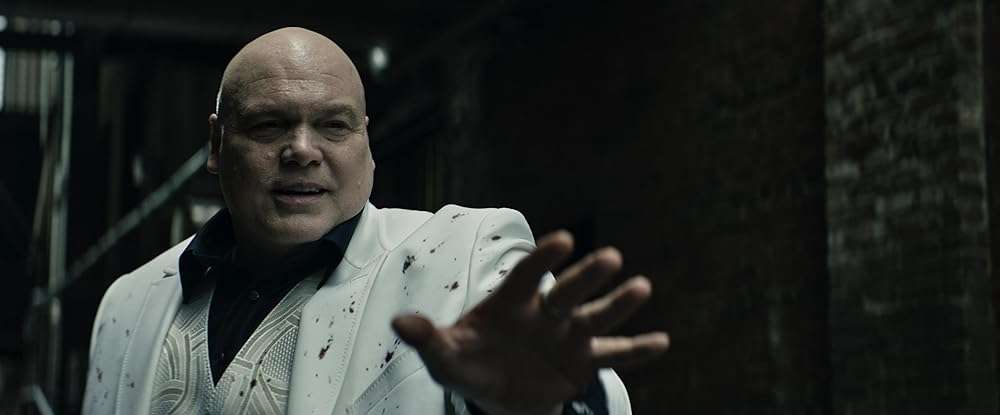
The third episode, titled “Tuklo,” opened with newsreel-like footage describing the dangerous time during the 1800s, when crimes enacted against the Native Americans would lead to the formation of the Lighthorsemen, the police force of the tribe. Tuklo had wanted to join the Lighthorsemen, but her father had forbidden her because the women were expected to bring life rather than take it. Tuklo braided her hair like the male Lighthorsemen, trained with ranged weapons and using the powers she had inherited. It helped her rescue her father and his team from an ambush.
The story thread of Maya discovering her cosmic powers is quite different from the comics. In the comics, “Echo” had a power similar to mimicking the fighting styles of her opponent. Here, though, the cosmic nature of her power is a new addition that is also connected to her roots. This inadvertently connects to the discord Maya has with her family in Oklahoma and her connection to her powers with her mother, which also ties into reckoning with her past.
What is Maya’s plan in Oklahoma?
Maya’s plan in Oklahoma is to effectively start dismantling Fisk’s operations as a form of revenge against her adopted father. She doesn’t know, however, that Fisk survived the bullet wound to the eye. Meanwhile, Maya, wounded and nursing her wounds as barely as she could, reaches her old home in her hometown, which had still been kept untouched ever since that fateful day of her mother’s accident, which had also made her lose her leg. That night, as she sleeps, she is visited by visions of her ancestors.
The next morning, she is visited by her cousin “Biscuits” and his dog “Billy Jack.” Biscuits is understandably pleased to see her New York bigshot cousin, even as Maya asks him to keep her presence quiet in the town. Maya doesn’t want anyone, especially her cousin’s best friend Bonnie and her grandmother Chula, to know she has returned to town. She goes to the local roller skating rink owned by her uncle Henry (Chaske Spencer), where she gets patched up by an undertaker (moments of strange, cute humor). Henry is understandably worried about her presence, especially considering Maya has been branded the “King Killer” and Maya’s plans to take over the Fisk empire, becoming the “Queenpin” in the process. Henry’s henchman, Vickie, meanwhile, recognizes Maya and sends a message to Fisk’s chief underling, Zane, about her presence.
Maya’s steps to bring about a dent in Fisk’s empire begin with her taking Biscuits and his truck out for a run. Ordering Biscuits to keep up with her in the dead of the night, Maya jumps on top of a train containing a shipment of munitions going to Fisk’s warehouse in New York. Maya had help in bringing ropes, spy cameras, and hooks to hitch on the train from “Biscuits,” who had managed to buy them from Scully’s pawn shop. Once hanging from the train, Maya manages to enter the carriage by cutting through the floor of the bogey. There, she inserts a device in one of the boxes before managing to climb out of the train and run towards the last car.
In that process, her prosthetic leg gets caught between the coupling of the two coaches, and Maya, again affected by nightmares, manages to use powers similar to the ones Lowak used to win in the past to push the coupling away. She barely manages to jump from the train to the truck driven by Biscuits before the train enters the tunnel. Biscuits is, of course, worried because his grandmother would kill him if she knew he had taken the truck out this late for a joyride, much less know about Maya.
The train, meanwhile, reaches the warehouse in the morning with the ammunition. But Echo’s plan does the trick. Unbeknownst to Zane and his goons, she had installed an explosive in one of the crates, which, upon opening, got activated, destroying the entire warehouse and all the weapons within. Luckily for Zane, he had been outside and had managed to escape somewhat unscathed, even if his pride was dented. But it spells trouble for Henry. On the one hand, he had been visited by Chula asking about Maya’s intentions in the town, and he had been forced to lie that she was just passing.
On the other hand, the higher-ups at Fisk Shipping are investigating the cause of the explosion, correctly deducing it as sabotage and having occurred at one of the intermediary stations or mid-journey. Henry furiously texts Maya to talk with her, who coincidentally, at that moment, is at Scully’s shop to repair her prosthetic leg. Not believing her excuse in the slightest, Scully sets about repairing the prosthetic leg while gifting her a temporary new one for movement.
Trouble, however, brews when Maya and Henry are taken hostage by Henry’s assistant, Vickie, and his sidekicks from the skating rink. Meanwhile, Bonnie, who had learned of Maya’s arrival after Biscuits had coincidentally let it slip while having a conversation with her, had also come to the skating rink to ask Henry about her whereabouts. Henry tries to warn her to go away, but in vain, and Bonnie is taken captive in the same storeroom with Maya.
The two cousins don’t have time to reunite and ruminate, while Maya manages to free them both. She manages to deceive Vickie and his sidekicks by punching her cousin intentionally so that she can be outside the storeroom and Maya can be left alone. Now left to her devices, Maya creates a makeshift nail gun, which she uses to try and escape. Unfortunately, at that moment, Fisk’s man Zane arrives and kills Vickie, intent on questioning Henry about Maya.
Maya uses the makeshift gun, her physical prowess, and a couple of arcade cabinets to take out Zane’s goons in a brutal fashion until Zane finally holds Bonnie at gunpoint. It almost felt like everything was over because Zane was ready to blow the brains out of both Henry and Maya Lopez until he received a call that stopped him. He orders his wounded henchmen to leave Lopez alone, which surprises Maya. But Henry reminds her that only one person could have called off the hit, and Maya is shocked because she had thought he had killed him.
Maya is delivered her new prosthetic leg with a beautiful-looking talisman signifying her heritage, while Scully advises her to reach out to her grandmother. Having been married to Chula once upon a time, Scully could tell the two women do need to connect. A family reunion is in the cards, however, just not the one Maya was expecting. As Maya rides her motorbike to her parents’ home, she is shocked to find Fisk there, waiting for her.
Family Reunion
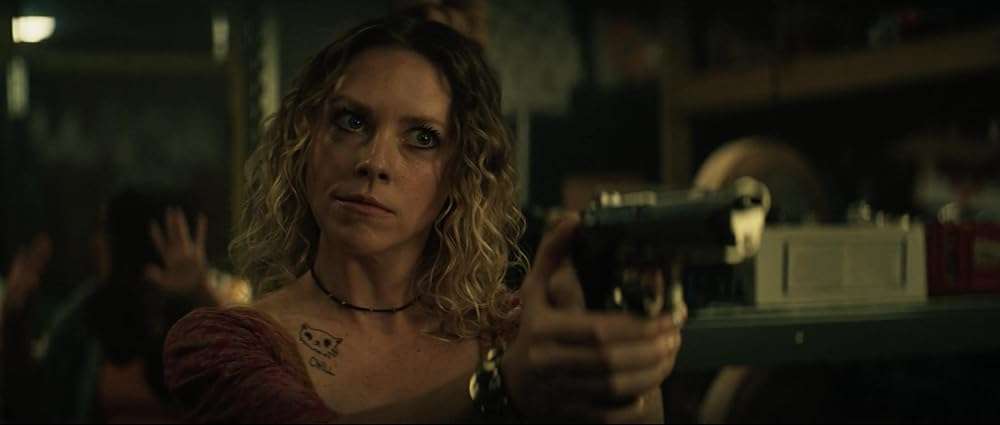
The meeting with Fisk and Maya is wrought with uneasiness because Fisk is shown to clearly care for her in his own twisted way, and he has even brought a bottle of wine and chocolates from her favorite shop so that they could have their “Sunday dinners” together. More importantly, Fisk forcefully fits her with a new lens that allows her to understand his speech by translating it to ASL and feeding it to her lenses, while vice versa would be done to a lens connected to his eye. Fisk thought that would be constituted as an olive branch, which Maya clearly doesn’t believe it is.
Even as they ready their “Sunday Dinner,” Maya empties the expensive wine bottle in the basin. Fisk realizing that Maya is not open to small talk, relents and tells her that if she wants an empire to rule, she can have it, but only if she can return with him to New York. He would be waiting for her answer at the Choctaw Nation Casino until tomorrow.
The next morning, Henry is shocked to learn that Maya had dinner with Fisk and had not only come out alive, but Maya is seriously considering taking up Fisk’s offer. He warns her that being in this life would result in Maya ending up like Henry, stuck in this town and alone with no family of her own, something he doesn’t want her to go through. Meanwhile, the Choctaw Pow-wow would be happening tomorrow, and Chula is focused on making sure the fairgrounds are all spick and span, when suddenly both Chula and Maya have visions of their ancestors. Henry, scared of Maya becoming unconscious midway through their conversation, takes her to Chula.
At Chula’s home, amidst the thorny reunion, Chula reveals that Maya being visited by visions of her ancestors is almost like an acknowledgment of the powers that had been passed on to their family through generations. Chula explains that one of the visions that Maya sees is that of her giving birth to Maya’s mother in the forest. After complications arose in her pregnancy, she was advised to remove herself from the white hospital and taken to the forest, where her ancestors appeared during the time of her need, the life or death moment, and helped deliver her daughter safely.
This ordeal strengthened the connection between Chula and her daughter, and thus, her death had driven an irreparable wedge between her and her granddaughter because she couldn’t stand to be around her as they were so much alike. That doesn’t sit well with Maya, and thanks to a fantastic performance by Alaqua Cox, Maya finally reveals her fury and hurt at her family for not contacting her for over 20 years.
As for the other family reunion, Maya drives up to the Casino to kill Wilson Fisk. Fisk had anticipated that and confronts her, explaining to her that yes, he had killed her father. He then rationalizes that by gifting Maya with the same hammer Fisk had used in his youth to kill him (also confirming that the events of “Daredevil” Season 3, and thus the whole series are unequivocally canon) and instructing Maya to kill him and earn her freedom.
It would be a twisted way to bring everything full circle, and while Maya refuses to kill Fisk, Fisk, in his arrogance, believes that their life has still come full circle because that meant Maya would join him and return to New York. However, Maya’s refusal is also Maya consciously abstaining from her “uncle” and taking the step to reclaim her own life and identity. Thus, the next morning, she doesn’t join her uncle at his jet, choosing to ride away from the town, much to Fisk’s chagrin.
What power does Maya inherit from her mother?
The final episode, titled “Maya,” opens with a flashback of Maya hitting down a woodpecker with a sling and bringing the wounded woodpecker to her mother. We see her looking straight through the lies Maya was espousing about the woodpecker having wounded itself by falling from the tree. Maya’s mother gently chastises her, stating that the bird is scared and that Maya’s aim should always be to preserve life, not take it away. There is poetry, almost like echoes here from Tuklo, doing the same thing in the preservation of life. Soon after, we see her using her hands to heal the woodpecker, utilizing the same powers that had been passed down from her ancestors.
Back in the present, it’s the day of the Choctaw Pow-wow, and unbeknownst to the sleepy town, it has new guests. Zane and his cronies park near the fairgrounds, while Fisk introduces himself to Chula at the bank and engages with her in a conversation about her granddaughter. Maya, meanwhile, is having a meal at a breakfast joint when she is called by Biscuits, who informs her that both Bonnie and Chula are missing. Realizing that something is amiss, Maya rides back quickly to her house, where she is accosted by a vision of her mother. Her mother then reveals that all the visions of her ancestors that Maya has been experiencing are part of a birthright. She has abilities that she inherited from her ancestors. From Chafa, the first Choctaw woman, she inherits ferocity.
From Lowak, she inherited strategic thinking; from Tuklo, she inherited cunning; and from her mother, she inherited love and healing. Almost acting as a conduit for closure, Maya is transplanted to the day of her accident, where she had healed most of her physical injuries before passing away. It is never explained why she had been unable to heal her hearing, but it does manage to bring closure to Maya, who had been wracked with guilt about her mother’s death, believing her insistence to go to the supermarket for ice cream had resulted in her death rather than the brakes being tampered with to stop working.
The vision also reveals the traditional superheroic uniform. It’s the same uniform Chula had finally fetched from her old sewing machine from Scully and a work that we realized she had resumed rather than newly created. It almost feels like a reclamation of that birthright.
Echo (Season 1) Ending Explained:
Maya is led to the pow-wow with the help of the woodpecker, who has now proved to be a mystical messenger for the Choctaw to lead toward danger. Maya, in that traditional uniform, is led to a stable, where we see Fisk holding Bonnie and her grandmother hostage. As Fisk begins to talk to her, remarkably without the lens but now utilizing Bonnie as an interpreter, Maya activates her power. We see her accompanied by her ancestors as she channels her power and transfers it to Bonnie and Chula.
While the three women battle Fisk’s goons, Fisk barrels toward Maya in anger, but Maya stops him with her powers, and as he falls to his knees, she uses her healing powers to transplant him back to his memories of the past, on the day when he had killed his father. Within that memory, Maya tries to take the hammer from him, but Fisk refuses to become “the man she wants him to be.” We don’t know what ultimately happens, but it shocks Fisk enough that he lets his prisoners go and drives away from the town.
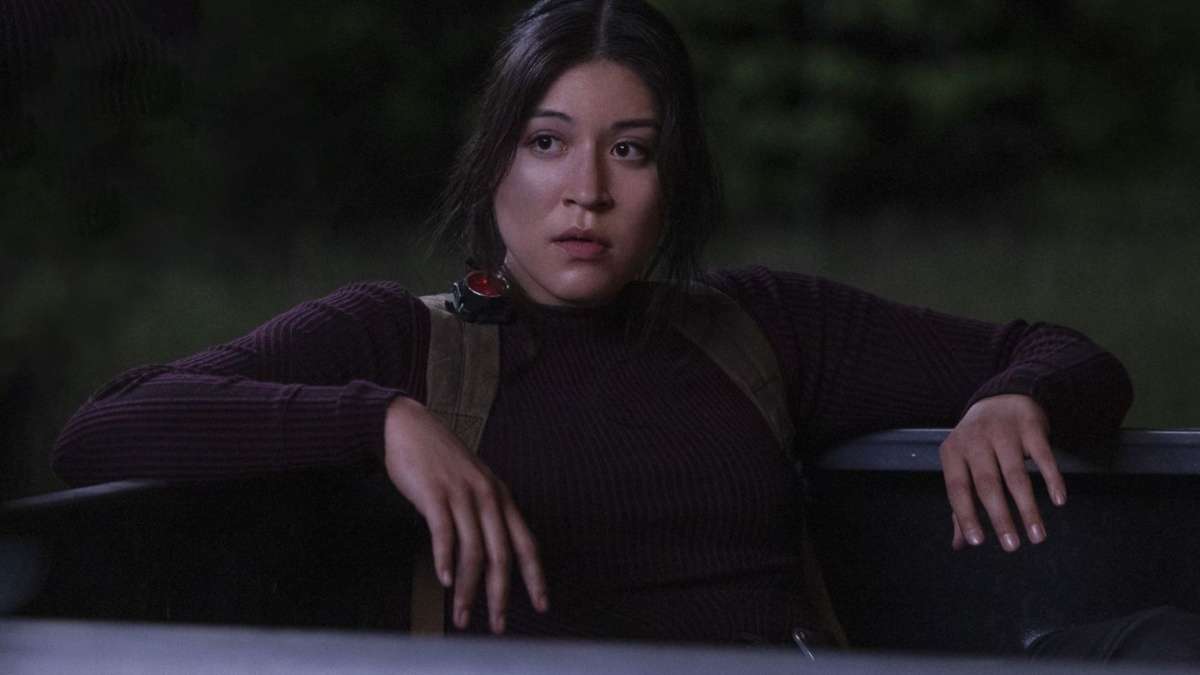
And not a moment too soon because at the pow-wow, both Biscuits and Henry manage to take care of Zane and his goons. Biscuits uses his truck, which he had modified using the wheels of a monster truck after that adventure with Maya, to destroy the van containing the armed henchmen, while Henry manages to shoot Zane in the head when Zane had been in the middle of shooting a bazooka and destroying the fair. The bazooka instead flies upward and explodes in the air.
The show ends with Maya joining the Lopez family for breakfast, with Chula and Maya finally reconciling. A post-credits scene shows Kingpin licking his wounds as his jet readies itself to go back to New York. He sees the news reporting on the coming election of the mayor of New York City, where the analysts believe that the citizens want a candidate who is an outsider and a blue-collar man, a fighter. Fisk looks on at the news, intrigued, clearly setting up for him to run as mayor of the city and also setting up his future appearance in “Daredevil: Born Again.”
Echo (Season 1) Review:
The first MCU property to be released under the “Spotlight” banner, “Echo,” definitely marked a concerted effort to tell a story with diversity and representation as one of the primary foci rather than the only focus. By also putting enough emphasis on the story, “Echo” feels distinctively its corner of the “Marvel Cinematic Universe” rather than retroactively trying to force itself into a larger tapestry that unfortunately doesn’t exist as of yet.
There are, of course, deliberately self-inflicted issues. By shortening the episode count from 8 to 5, it speeds up the story, but at the cost of character development. As far as the plot is concerned, the central plot of the entire miniseries is enough for a 90-minute film rather than a roughly 5-hour miniseries. And while the show is dipping its toe into the violence and mature rating, perhaps to attract the audience of the Netflix-produced shows under the Marvel brand, it still has those cute moments of humor that threaten to derail the story.
The positives, though, cannot be denied. Alaqua Cox has a physicality and rawness that manage to be translated into the source material. It is a strong choice to have your protagonist be mostly unlikeable and angry all the time, but Cox sells Maya’s angst without making her beholden to her disability. On the contrary, her prosthetic leg is displayed proudly as a mark of strength. Her action set pieces vault her by giving her an air of legitimacy. There is a genuine brutality to the fight scenes, which is translated effectively when the camera depicts the lead actress rather than the stuntmen at work.
The show is at its most interesting when it depicts the differing tactics of the New York Tracksuit Mafia, the Kingpin, and Maya battling it out in a small town. There is a strong “Tulsa King” vibe to all of those elements, the milieu, and those unique stabs of whimsy. The emphasis of Native American culture echoing throughout generations is a deliberate choice, managing to integrate both the anthropological and the supernatural.
The problem is that, unlike Cox and D’Onofrio as Daredevil, there isn’t enough real estate for us to be invested in Maya’s familial discord, both in terms of screenplay and in terms of dialogue. It thus becomes the onus of the actors to elevate mostly bit roles into legitimate performances. One of the primary victims of said feature in the screenplay is Devery Jacobs as Bonnie. A gifted actor in her own right, getting a lot of exposure after her phenomenal work both in front and behind the camera in “Reservation Dogs,” she is reduced to a damsel in distress analogue. Thankfully, Tantoo Cardinal and Graham Greene make the most of the roles they were given, but it wouldn’t be a stretch to state that “Echo” should have been treated with the density and depth that an eight-episode or even a ten-episode miniseries deserves.
Creator Marion Dyre and director Sydney Freeland do manage to hone in on the low-key aspects of the story, very much focusing on this specific, unique corner of the MCU. There are almost egregious uses of CGI in the background, but the action sequences don’t get the brunt of CG enhancement. They feel authentic and stunt-men-driven. The Marvel Cinematic Universe, at this point, is an ever-evolving, large world, and perhaps necessity and maintaining continuity needn’t be the primary focus. As always, an emphasis on storytelling should be the aim and benchmark to attain. “Echo” doesn’t hit all the beats, but it is a step in the right direction after a very long time.

